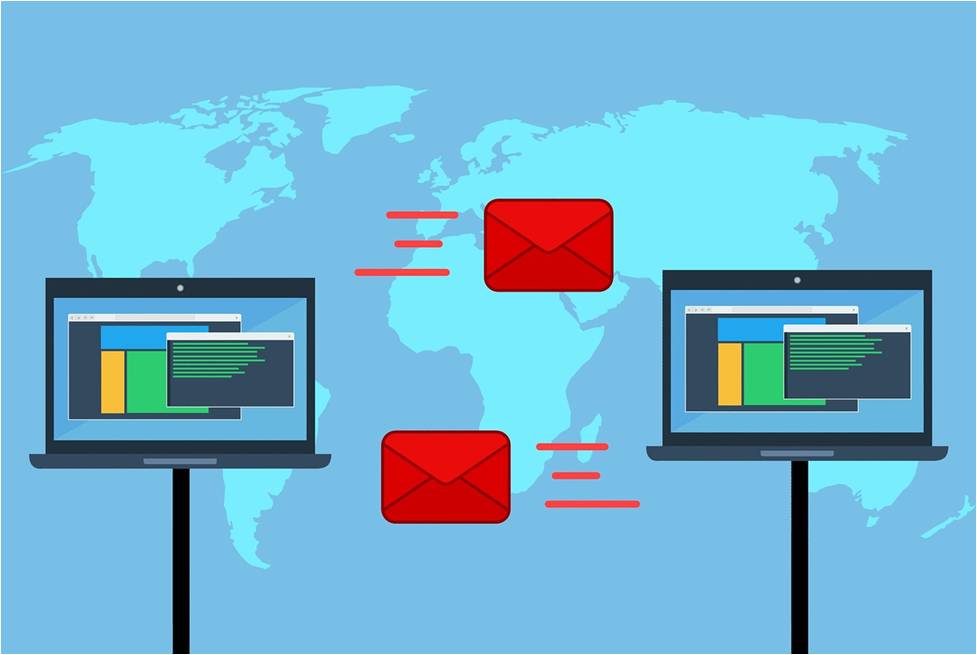
Email hosting is an ISP that provides email services. The main purpose of this service is to make it easy for the user to send and receive emails with a domain name instead of a free email address. It’s also important to note that an email host hosts not all domains. Every part must be registered separately through your ISP or Registrar. So, knowing what email hosting does is important before you commit to the process. The advantages of email hosting include the following:
People can send and receive emails from your special domain name instead of your ISP webmail address. You can send and receive higher volumes of emails with superior security. You can create a professional image by using your domain name for your emails. You can also purchase an unlimited book of emails, unlike with a free webmail account.
Conversely, you will have to pay for the email host service each year and any other fees associated with the entire process. The more features you want to be incorporated into the set-up process, the more it will cost you each year.
Types of Email Hosting
There are various types of email hosting you will have to consider, depending on what you’re looking for. The most popular styles include panel email hosting, shared hosting, VPS email hosting, and dedicated server email hosting.
Panel Email Hosting
This model has a single server where emails can be stored. At any given time, there could be more than one customer using the webmail interface via their domain name, but only one customer will have access to the account at any given time. You will not be able to alter anything about how the emails are stored or delivered from your area.
Hosting your email on a shared server is one of the lowest cost options, with the additional benefit of using your domain name for emails instead of your ISP’s email addresses. The downside to this type of email hosting is that it’s not very secure, and there are likely to be a lot of problems with spamming and slow delivery times.
Hosting your email on a VPS (Virtual Private Server) is a more secure option than the main types listed above. It allows you to use your interface for sending and receiving emails. You can choose from various VPS packages; each package will have different features that best suit your needs. These features include storage space and memory, bandwidth, OS type, and more.
Hosting your email on a dedicated server is the highest level of email host service you can find. This account will provide management over the hardware that allows you to manage your emails from anywhere in the world. It will also allow you to determine how much of your precious storage space is available for emails, which should be enough for all customers’ requirements.
Hosting Email for Your Domain
Now that you’ve studied the various types of email hosting, it’s time to learn how easy it is to hook up an email host with your domain name and start sending and receiving emails at lightning speed.
The first step is to search quickly to find a good email host. The best way to do this is by searching for “email hosting reviews” on Google. Fill out the contact form and request reviews for the top five options you’ve come up with.
After reading each review carefully, choose the best email host for your needs. The products will usually include email services, support packages, and additional features available according to your choice. Most premium-level email hosts will have their webmail interfaces, so you can choose one of these if you prefer it over other options.
Once you’ve chosen a package, you’ll need to get an account at your hosting company. You should first sign up for a free trial with your ISP. This will allow you to have an email address while ensuring that the account is not taken down due to poor service.
If you choose not to sign up for a free trial, it’s time to start taking care of the technical details before sending and receiving emails through your domain name.
The first step is simply finding out what email host software needs to be installed on your computer to communicate with the email host’s server and send and receive emails from that server. Consult your email host’s tutorials and guides to determine the best method of installing this software. Once installed on your computer, you can log in to your webmail account and access your emails by connecting through your domain name instead of a free ISP webmail address.
It’s also important that you have anti-spam software on your computer. Spam filters are available for free on the internet and can be very useful in blocking unsolicited emails from being delivered to your mailbox.
Once you’ve set up your email host on your computer and installed anti-spam software, you’ll need to tell it where to store the messages sent through the email address. The easy way to do this is by creating a new folder under the C: drive and naming it Email. Copy all of your emails into this new directory.
If you use another email address for other purposes, you should copy messages from this new folder into the main Email folder that is already on your computer. You can also delete any files that are in there due to past emails.
You will now be able to send and receive emails from your domain name rather than some internet service provider’s domain name addresses. Your ISP’s webmail address will still be available if you log into it to send or receive emails through different programs or platforms.
Email Hosting Services
After doing all this work, it’s time to try out your new email hosting services so you can feel comfortable with them before you start sending and receiving emails from your domain name.
Sign in to the webmail interface for your account by visiting the web address of your email hosting website. Once logged in, you can use the webmail interface to send and receive emails. You should also ensure that you have a spam filter in place and anti-malware software to protect your computer from viruses and other health threats.
When using your ISP’s email hosting services, you can create a new folder called Email on your C: drive when using its webmail interface. A message will be stored in this folder when it is sent to you or comes into your account.
Write and Win: Participate in Creative writing Contest & International Essay Contest and win fabulous prizes.


